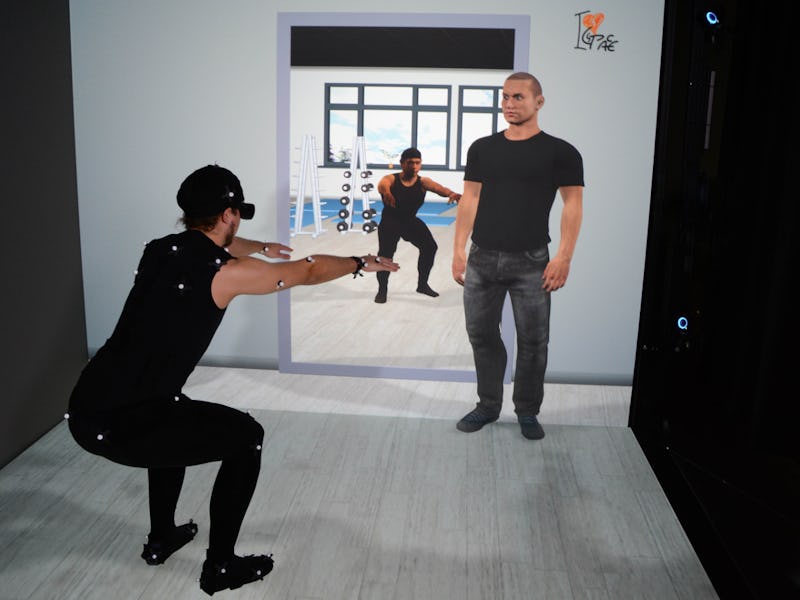Germans Breathe Life Into Virtual CrossFit With "Intelligent Coaching Space"
They want to pump you up physically by training you digitally.

An “intelligent coaching space” created by German researchers aims to improve athletic training as well as refine rehabilitation techniques for patients undergoing physical therapy. By melding augmented reality with a CrossFit-type ethos, the Cluster of Excellence Cognitive Interaction Technology research group at Bielefeld University has developed a way to give real-time fitness feedback in a virtual display.
The program hinges on liberal application of body tracking dots and a digital mirror projected on two sides of a room (such mirrors are helpful in psychological studies, too, for orienting a user in a virtual space). A 3D scan, coupled with the body trackers, transposes the athlete onto the virtual mirror; this offers what Bielefeld University cognitive scientist Stefan Kopp describes in a recent statement as “visual training cures.”
When squatting, if you throw your head too far back, the mirror on the wall exaggerates the error until you correct your form. (Though our sagging, pasty bodies couldn’t tell you how apt they are, internet guides supposedly detail what good squat form looks like.) And as you lower your body, your thighs glow red in the mirror as you’re in the right position.
To drive the realism home, the lab has created an artificial trainer, “an animated figure wearing jeans and a t-shirt.” Currently, he exhorts users to show him a squat, and though his German-accented English is clear, his delivery is just a touch on the wrong side of the canny hill.
If this whole get-up seems a bit squat-focused, well, that’s because it is. The German scientists are using the maneuver as proof-of-concept, but they hope to branch out to other physical activities, like yoga, or how to swing a golf club. Perhaps, even, a system like this could one day knock two strokes off your swing.